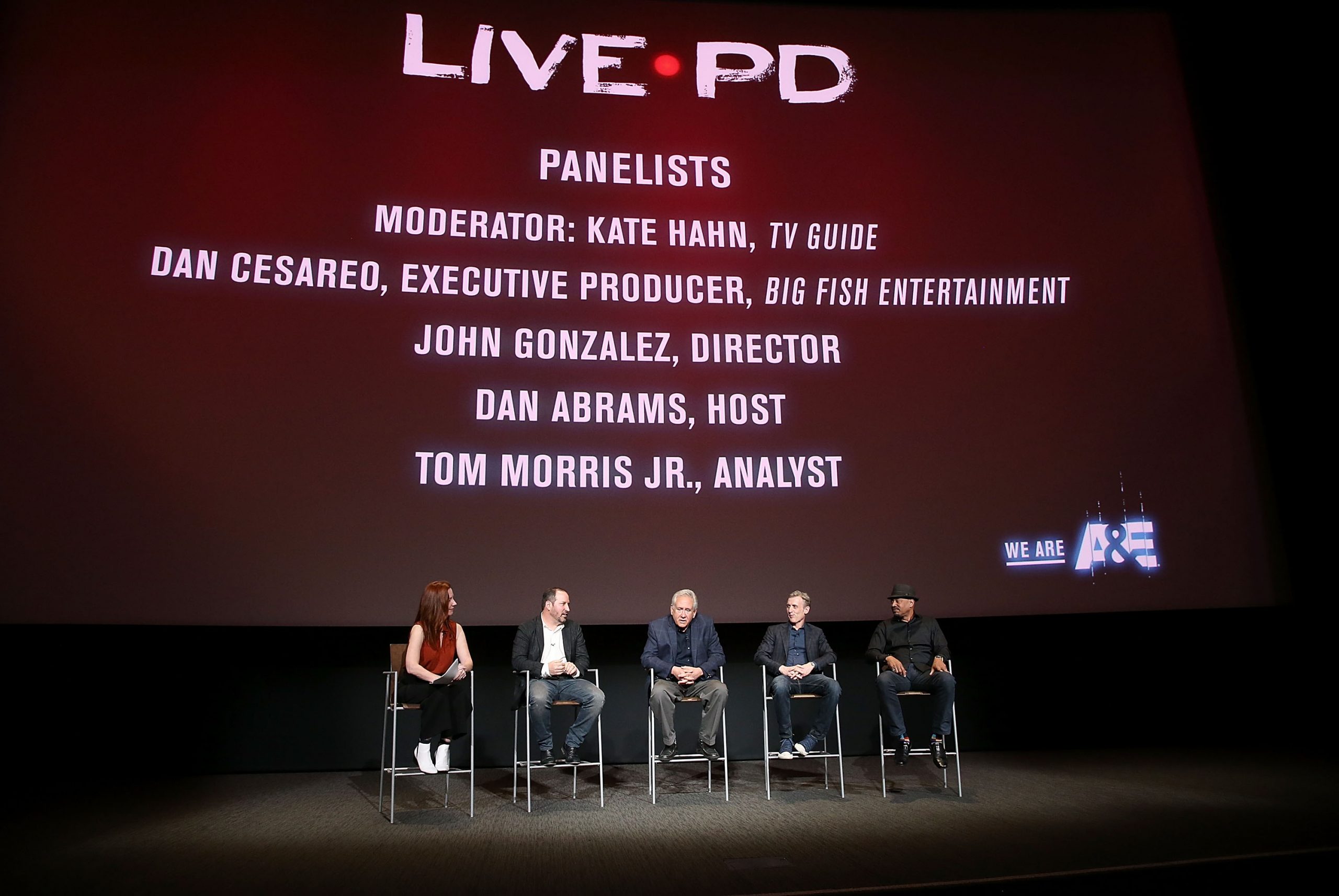Sharing Your Diagnosis Is a Personal Decision
- Journalist and TV host Dan Abrams, 57, reluctance to share his cancer diagnosis publicly is a decision many cancer warriors face on their journeys to recovery.
- Testicular cancer begins in the cells that make sperm. Fortunately for men with this kind of cancer, “it can be cured, even if diagnosed at an advanced stage,” according to the National Cancer Institute. It often presents a painless mass in the testicle.
- Testicular cancer often comes with stigma and shame for people diagnosed with the disease, sometimes preventing them from talking about it openly.
- Some people battling a disease or cancer are open to sharing their experiences as much as they can, while others prefer to keep it to themselves. SurvivorNet experts say both approaches and everything in between are valid.
Journalist and “Live PD” host Dan Abrams, 57, was diagnosed with testicular cancer roughly two decades ago. Now reflecting on that challenging moment in his life, the popular TV host shared his journey to going public with his diagnosis. Admittedly, he says he was reluctant to talk openly about his diagnosis.
Sharing a diagnosis doesn’t come easy for many people as they worry about possible embarrassment, shame, or stigma. Deciding when or even if you share your diagnosis with loved ones is entirely up to you. However, after coping with their diagnosis, some cancer warriors find strength in their journeys, leading them to inspire others on similar paths.

“However, there may not always be a palpable mass, and it may just be a change in the way a testicle feels or a heavy sensation,” Dr. McGregor continued.

)
Abrams kept his diagnosis quiet for roughly a year until he learned the experience of another journalist who had been battling the disease. Sean Kimerling, like Abrams, was diagnosed with testicular cancer in 2003 after feeling something amiss in his testicle. According to the Sean Kimerling Testicular Cancer Foundation, he died just one month after being diagnosed at age 37. Kimerling’s story touched Abrams so much that he felt compelled to share his diagnosis and journey to help others.
“At that time, I hadn’t planned on doing anything public on it. There are only a couple of people at my office who knew,” Abrams said. Then, after a fellow journalist’s struggles with the disease became public, Abrams said, “Suddenly, it hit me like a brick wall” the gravity of his diagnosis.
He noted the similarities he and Kimerling shared, which added weight to the disease.
“[He] was almost exactly my age, almost looked like me a little bit, who died from the exact same testicular cancer,” Abrams said.
After the tragic Kimerling’s passing, Abrams said he contacted his parents to express his condolences. He shared the sentiment, “That could have been me.”

Abrams eventually shared his diagnosis during a 2004 interview on the “Today Show.”
“I am lucky. Not only did I survive, but now, it seems, I am cancer-free and feeling as good as ever,” Abrams wrote in an op-ed. “Had Sean detected the disease earlier, he and I might have discussed our experiences in private.
“I hope that my willingness to go public can help other young men who, like Sean and me, never thought it could or would strike us.”
Understanding Testicular Cancer
A testicular cancer diagnosis is rare, but it is the most common form of cancer diagnosed in young men.
Depending on the stage, the disease is considered highly treatable. Treatment options can include chemotherapy and radiation, but often, the first line of treatment is surgery to remove the testicle, which contains the cancerous cells.
Symptoms of testicular cancer can be subtle. Some people may even confuse the early symptoms, such as a small mass in their testicle, as an injury. But when these signs are dismissed, the cancer can grow and become worse.
Dr. Edwin Posadas, the medical director of the Urologic Oncology Program at Cedars-Sinai Cancer, previously told SurvivorNet that some men may even notice blood in their ejaculate as a result of testicular cancer. “This symptom is less common but always bad,” he said.
“It’s not uncommon to see men come in with masses on their scrotum and have inflammation of the scrotal wall; they develop pain as a result. A lump is the most common symptom of testicular cancer,” Dr. Posadas adds.
Men should regularly conduct self-exams of their testicles for anything unusual.
Testicular Cancer symptoms can include:
- Breast growth or soreness
- Early puberty in boys
- Low back pain (a potential symptom of advanced testicular cancer)
- Shortness of breath, chest pain, or a cough (a possible symptom of advanced testicular cancer)
- Belly pain (a possible symptom of advanced testicular cancer)
- Headaches or confusion (a possible symptom of advanced testicular cancer)
WATCH: Todd Rosenbluth shares his testicular cancer journey.
To Share or Not to Share Your Cancer Diagnosis?
Some people battling a disease or cancer are open to sharing their experiences as much as they can, while others prefer to keep it to themselves or close loved ones. SurvivorNet experts say both approaches and everything in between, are valid.
“Patients who have just been diagnosed with cancer sometimes wonder how they are going to handle the diagnosis of the cancer in social situations,” psychiatrist Dr. Lori Plutchik explains.
Questions like “How much information should they share and with whom should they share the information?” are things Plutchik says patients take into consideration.
Dr. Plutchik explains, “There is no one right way to handle this diagnosis. People should do what feels right to them.”
A cancer journey can last months to years, which means cancer warriors may be experiencing a lot of uncertainty until they fully understand where their health stands. This uncertainty can influence when a cancer patient is ready to share their diagnosis, Dr. Plutchik further explained.
Dr. Plutchik stresses that those close to a person going through cancer should be respectful of their wishes when it comes to disclosing their diagnosis and seeking support.
Questions for Your Doctor
If you are facing testicular cancer and want to understand your diagnosis better, consider the following questions for your doctor.
- Has my testicular cancer spread beyond the testicle?
- What stage is my cancer in?
- What other tests should I expect as I continue learning more about the disease?
- What are my treatment options?
- What side effects should I expect with the recommended treatment?
Learn more about SurvivorNet's rigorous medical review process.

